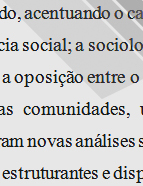

................................
It was only in the last three decades of the 20 th century, after the work of António Manuel Hespanha , curiously a historian who came from the field of law (Cristina Nogueira da Silva et al. Eds., António Manuel Hespanha , Entre a História e o Direito , 2015), did the history of institutions begin to address innovative themes such as the decentralisation of power, the social and political construction of the state, the loss of the monopoly of coercive institutions, the discovery of the soft power of persuasion, symbolic violence, mechanisms of legitimation, political pluralism, the alterity of legal norms, the autopoiesis of bureaucracy, love and the affections of domination, and disciplinary devices of government.
In any case, these two major theoretical and methodological dimensions, the more formalist-statist one and the fragmentation of objects of study and methodologies, have continued to the present day, favouring various analyses and critiques that have contributed and continue to contribute to the appreciation and enrichment of the very concept of institution and the history of institutions. We can conclude that institutional historiography, throughout the period covered by this DHP, was fundamentally marked by positivism and liberal state theory and did not show any theoretical tendencies of interpretation (see, for much of the period, Armando C. Homem, “From Liberalism to the Republic or a Time of Lost Opportunities: para um perfil do “ historiador português ” de Oitocentos ”, Revista Portuguesa de História , 42, 2011, pp. 85-94). The context was also marked by a preference for topics such as the courts, municipalities, royal power, the organisation of central administration and corporations, a choice justified by liberalism, for whom these institutions marked the regenerative programme against ‘absolutism’, and by the Estado Novo due to the ideological nature of the regime. In any case, this history of institutions contributed undeniable services to future historiography: incorporation of the archives of the Old Regime bodies, custody and creation of archival institutions, document processing (description and accessibility tools), mass production of collections of legislation, dictionaries and repertoires and, last but not least , the training of archivists and librarians.
This work is financed by national funds through FCT - Foundation for Science and Technology, I.P, in the scope of the projects UIDB/04311/2020 and UIDP/04311/2020.
